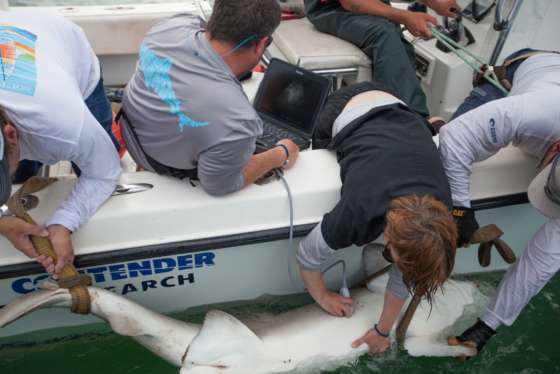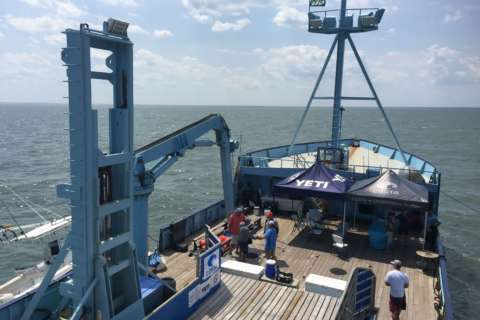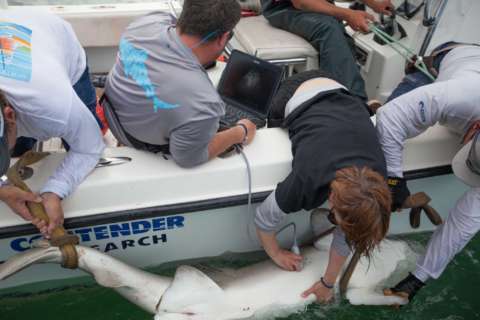
Editor’s note: This is the second article in a four-part series about sharks on WTOP. Catch up and read the first article about the start of Shark Week and scientists’ concerns about shows sensationalizing the fear associated with sharks.
CAPE MAY, N.J. — What are great white sharks, or what scientists call simply white sharks, doing in the mid-Atlantic?
A ship loaded with experts recently visited the region’s coast to try to find out.
The expedition by the nonprofit group OCEARCH began in Norfolk in late June with the goal of tagging mature white sharks in the region that includes Delaware, Maryland, New Jersey and Virginia.
Sharks tagged by OCEARCH can then be followed online in near-real time through the Global Shark Tracker.
On the day WTOP’s Michelle Basch visited the group’s 126-foot research vessel, which is a decommissioned crab boat, it was anchored in the Delaware Bay between Delaware’s Cape Henlopen State Park and Cape May, New Jersey.
“We chose this region because this is the … last spot along the Atlantic coast that we have not fished,” said Dr. Mike Hyatt, staff veterinarian at Adventure Aquarium in Camden, New Jersey and chief scientist for the expedition. “We really wanted to check out this area, and following the sharks that we have tracked, they definitely utilize this area. They come through here,” he said.
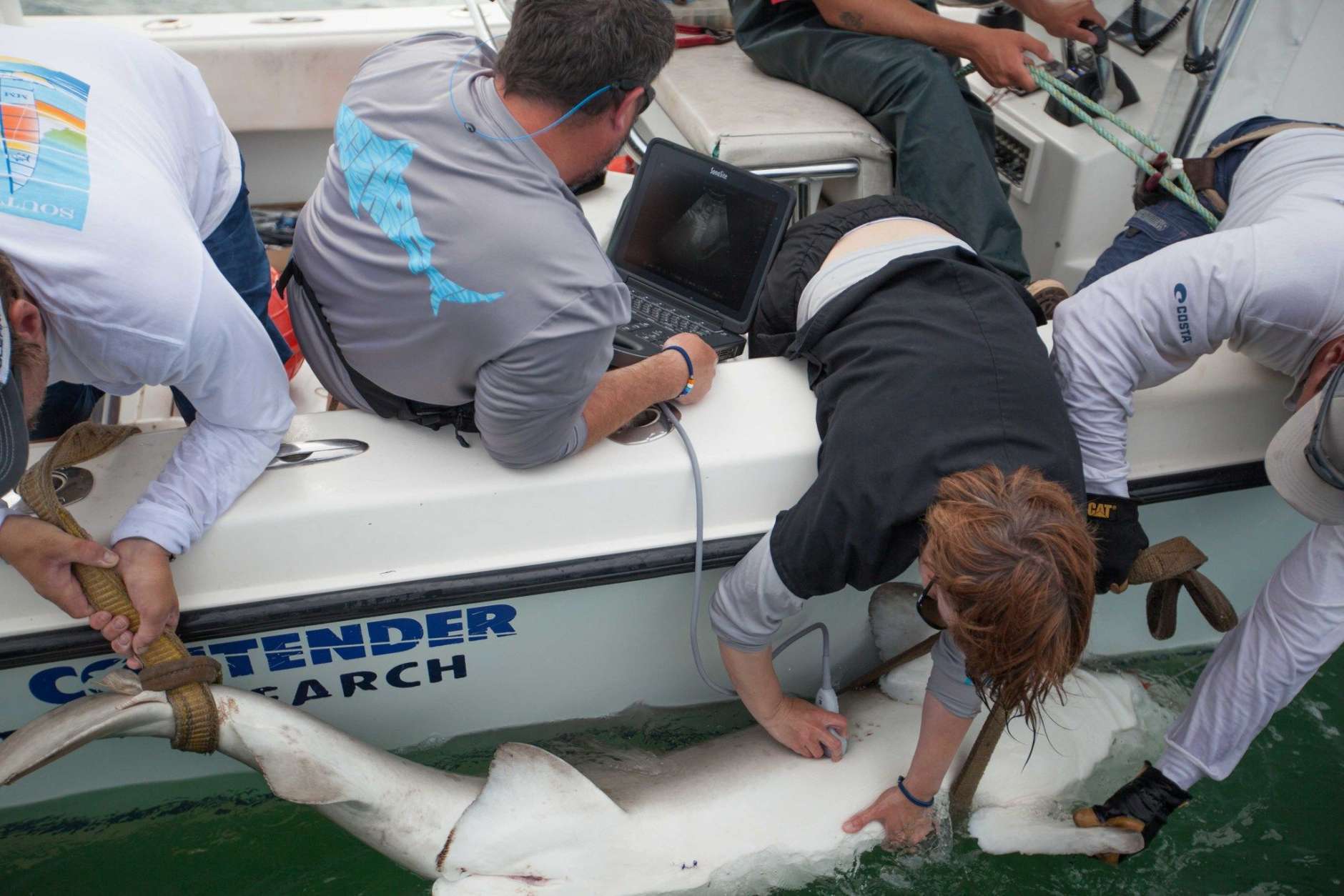
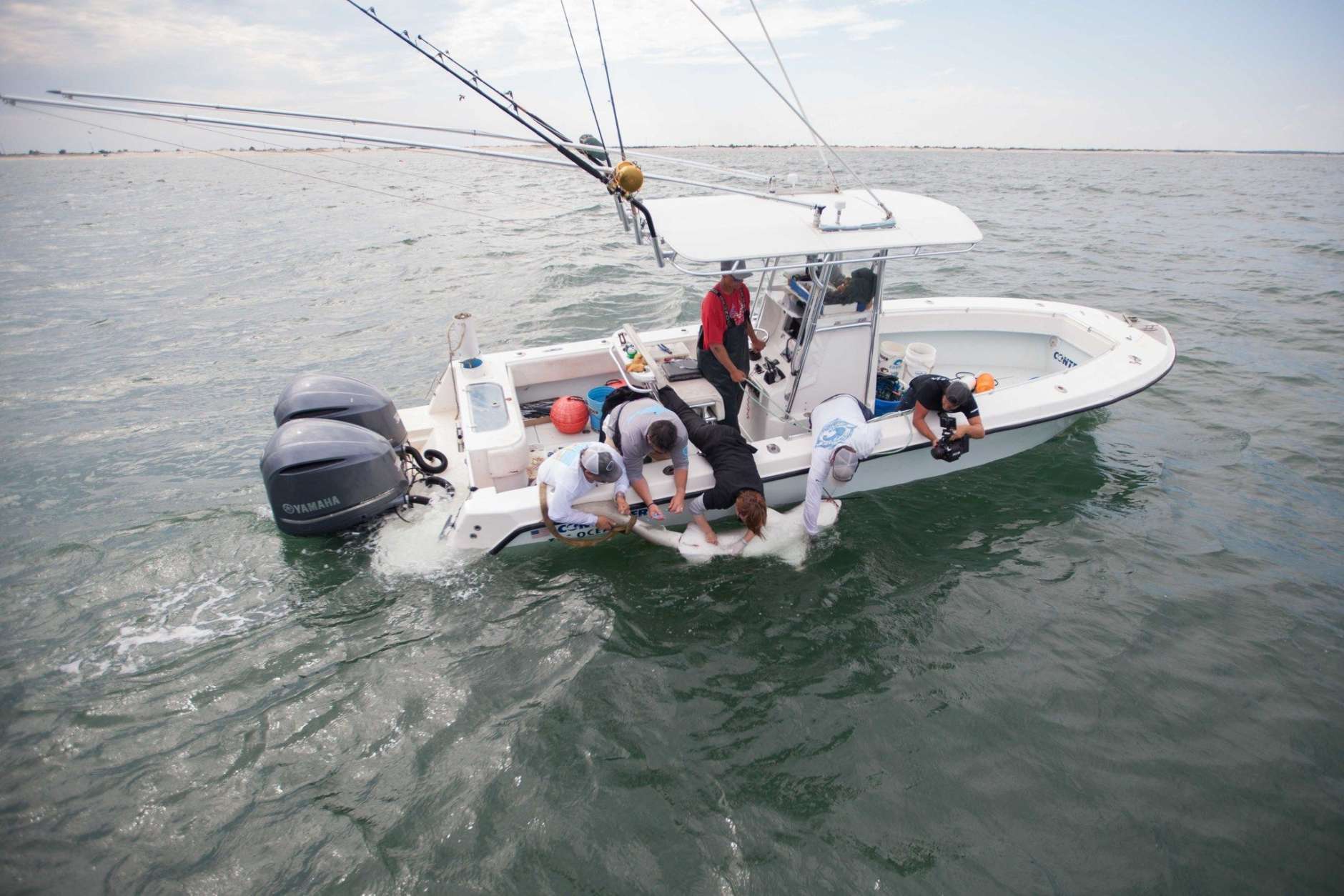
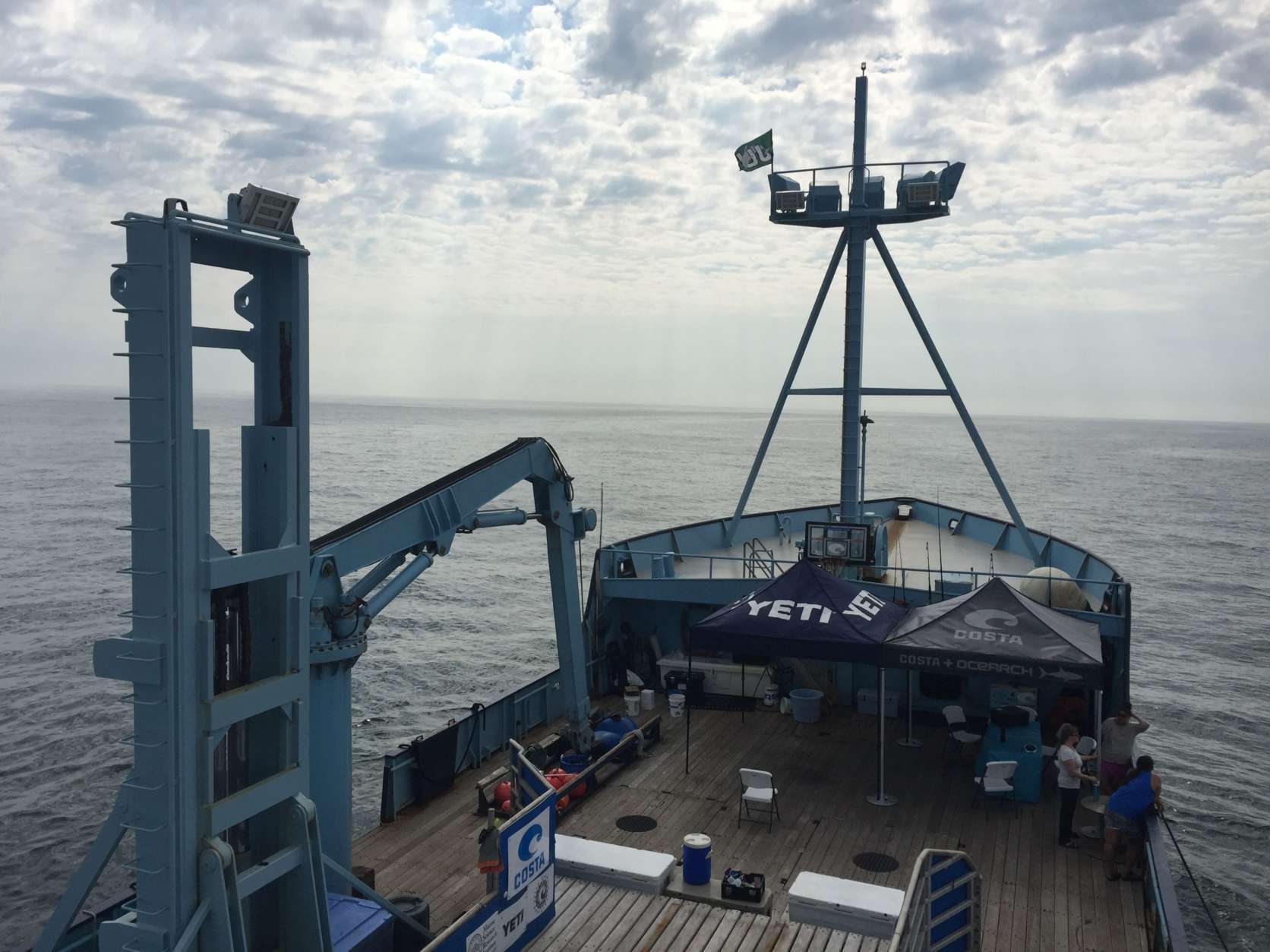
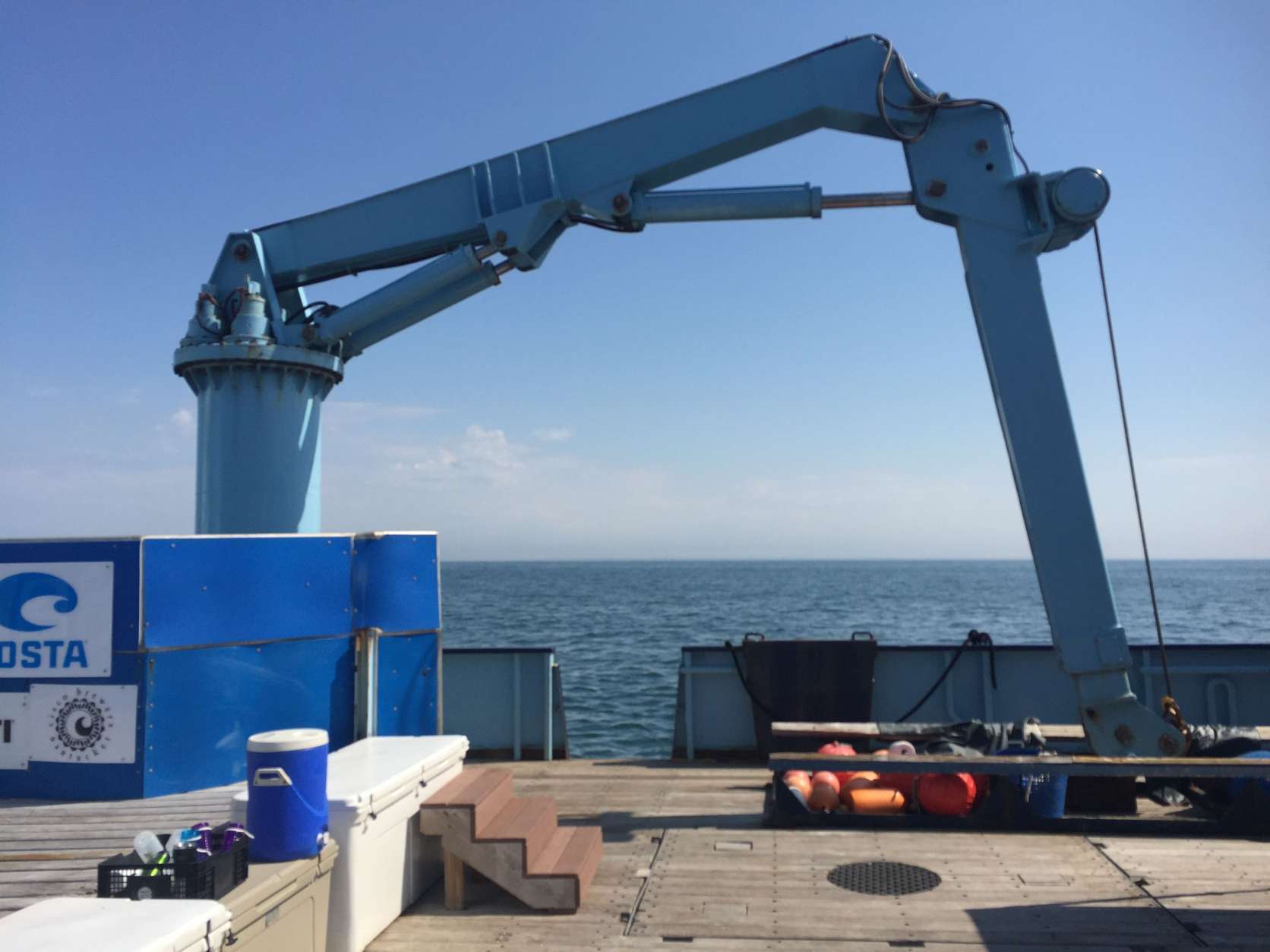
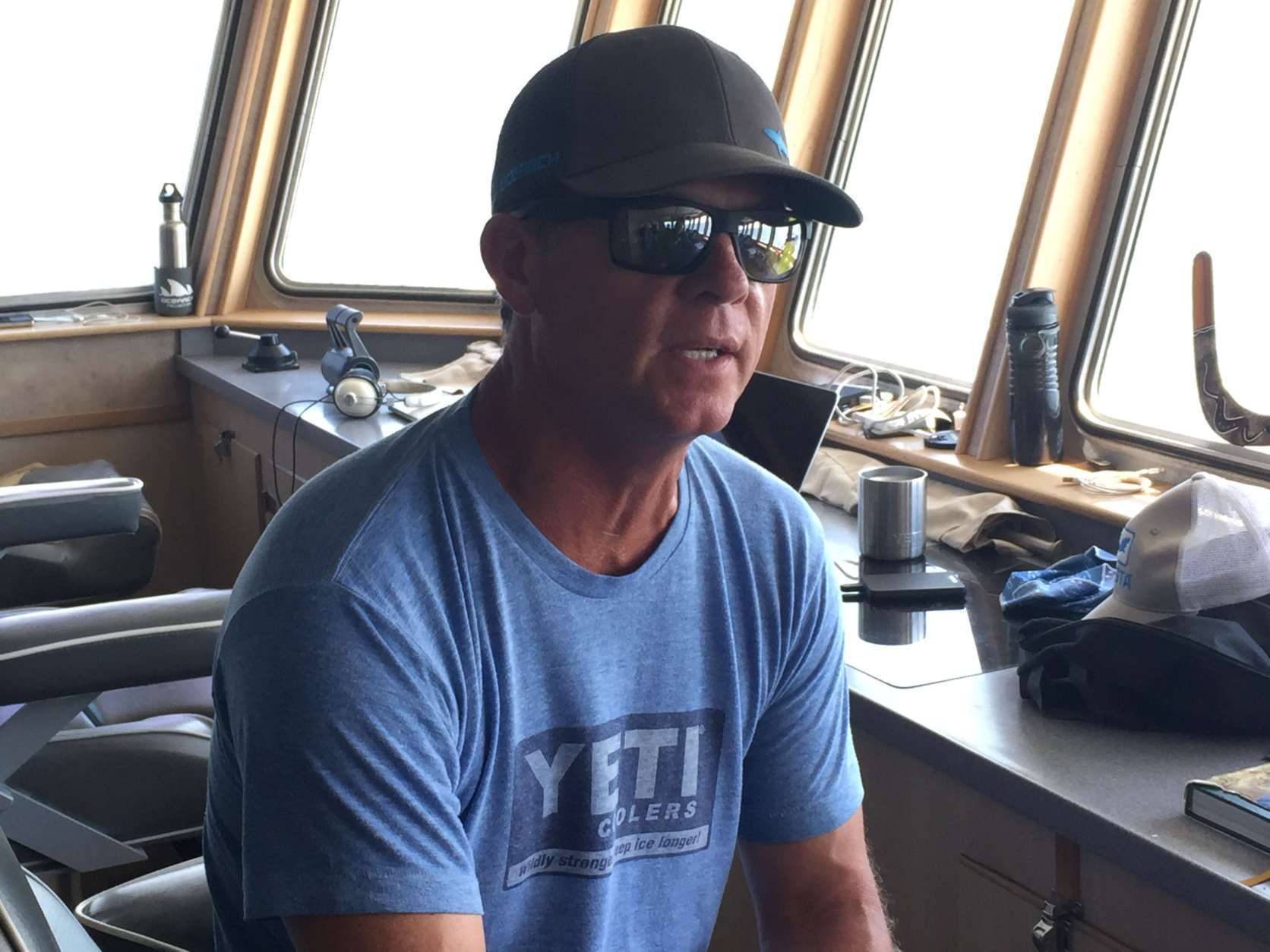
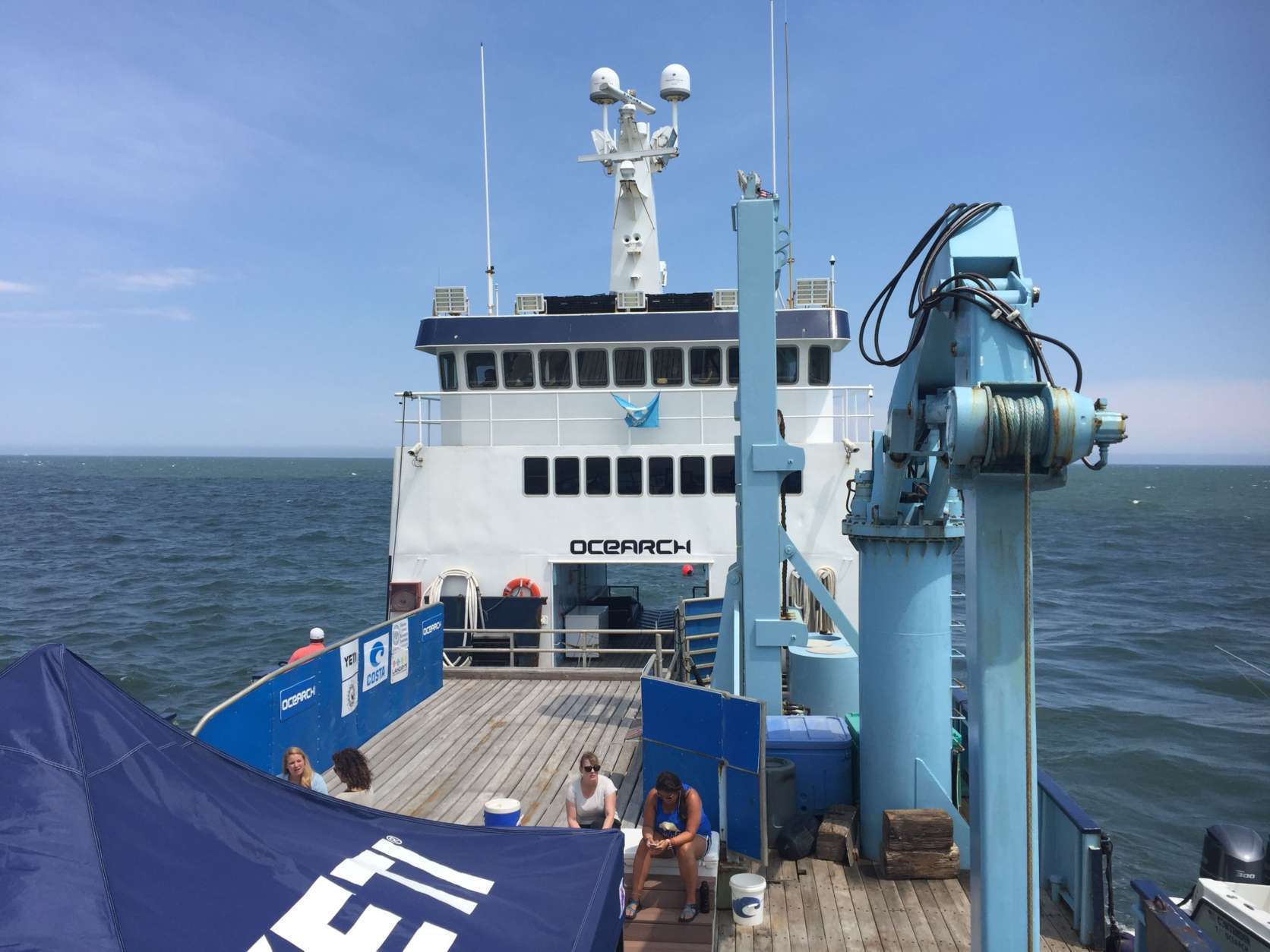
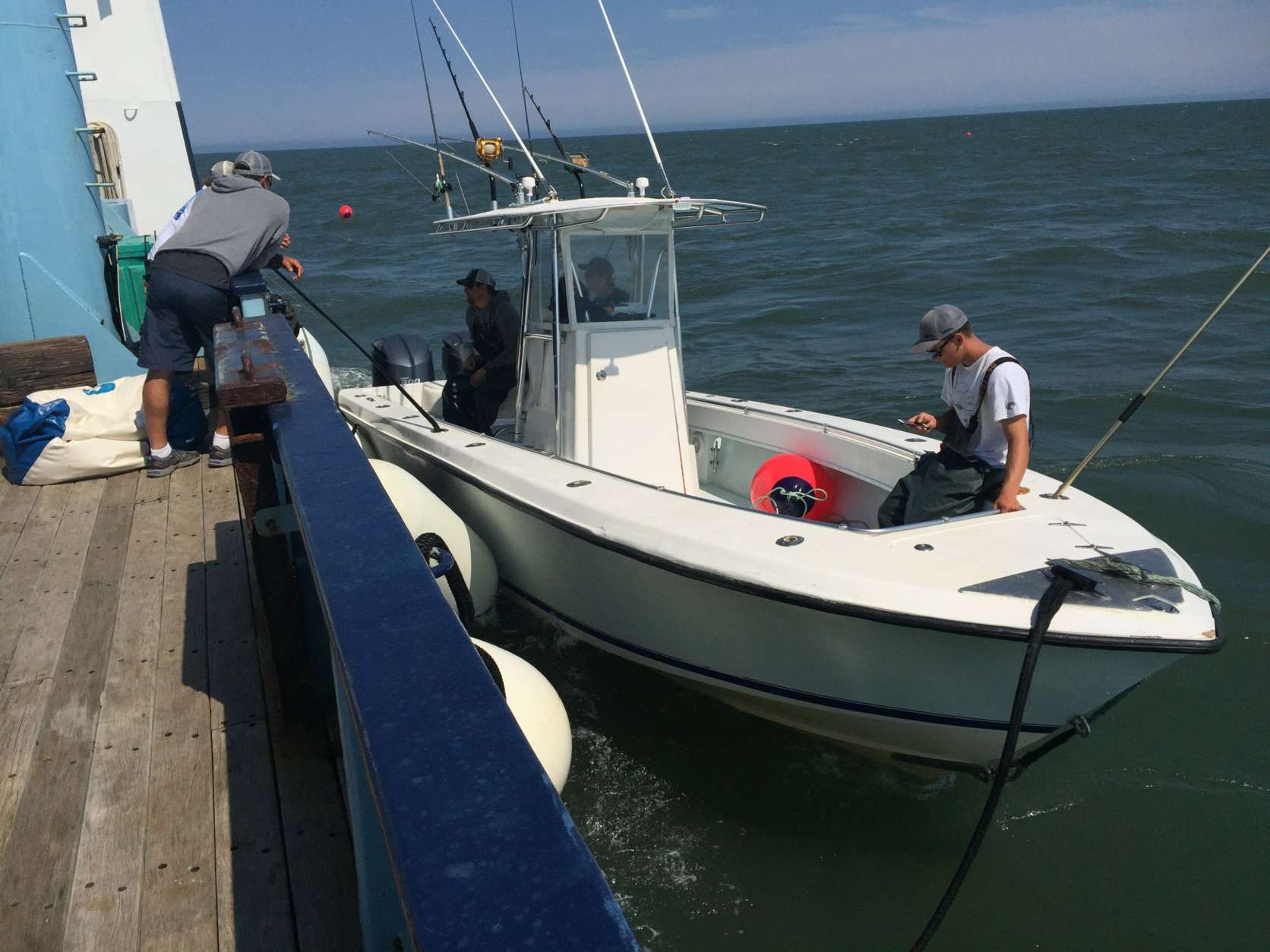
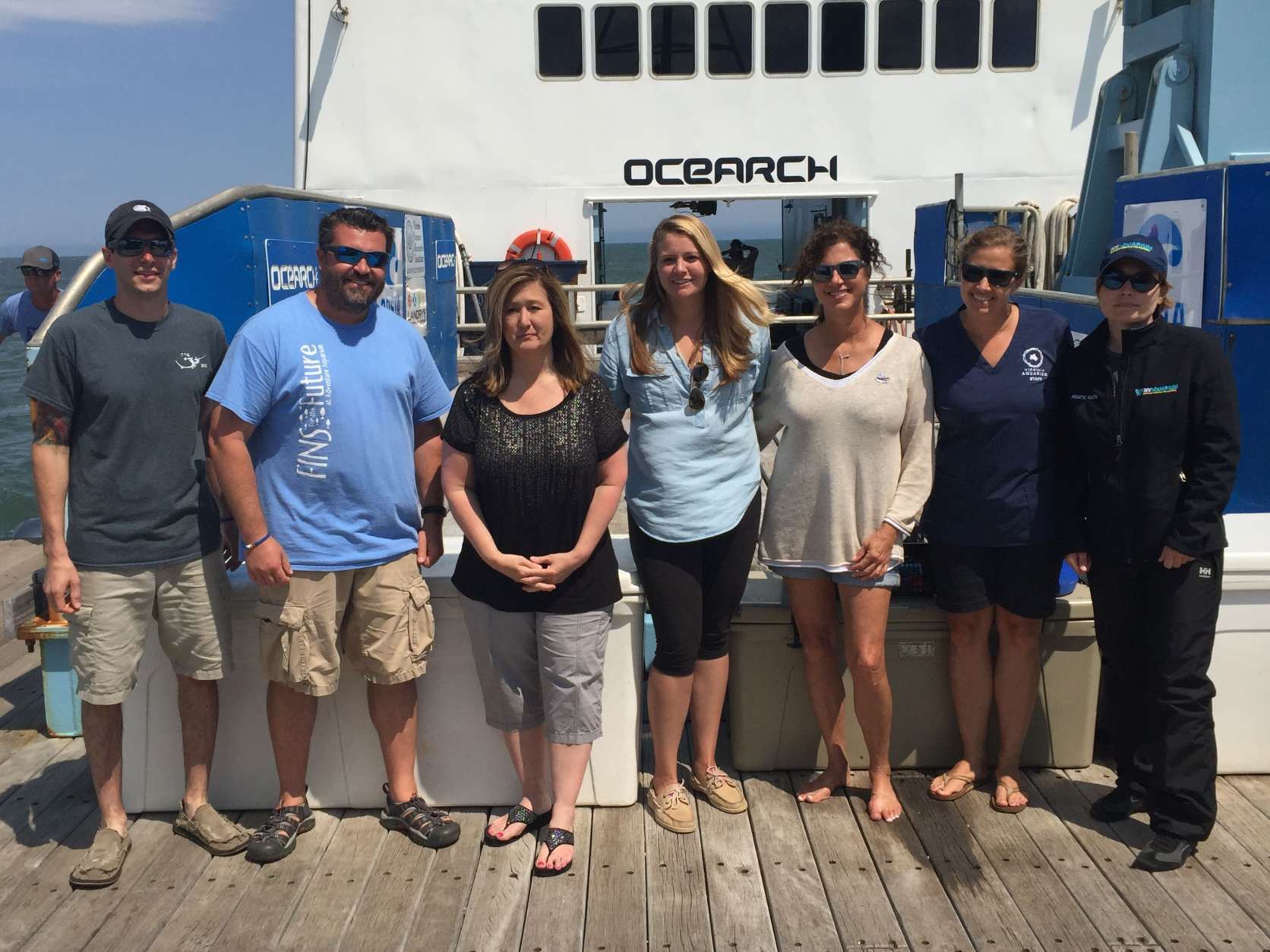
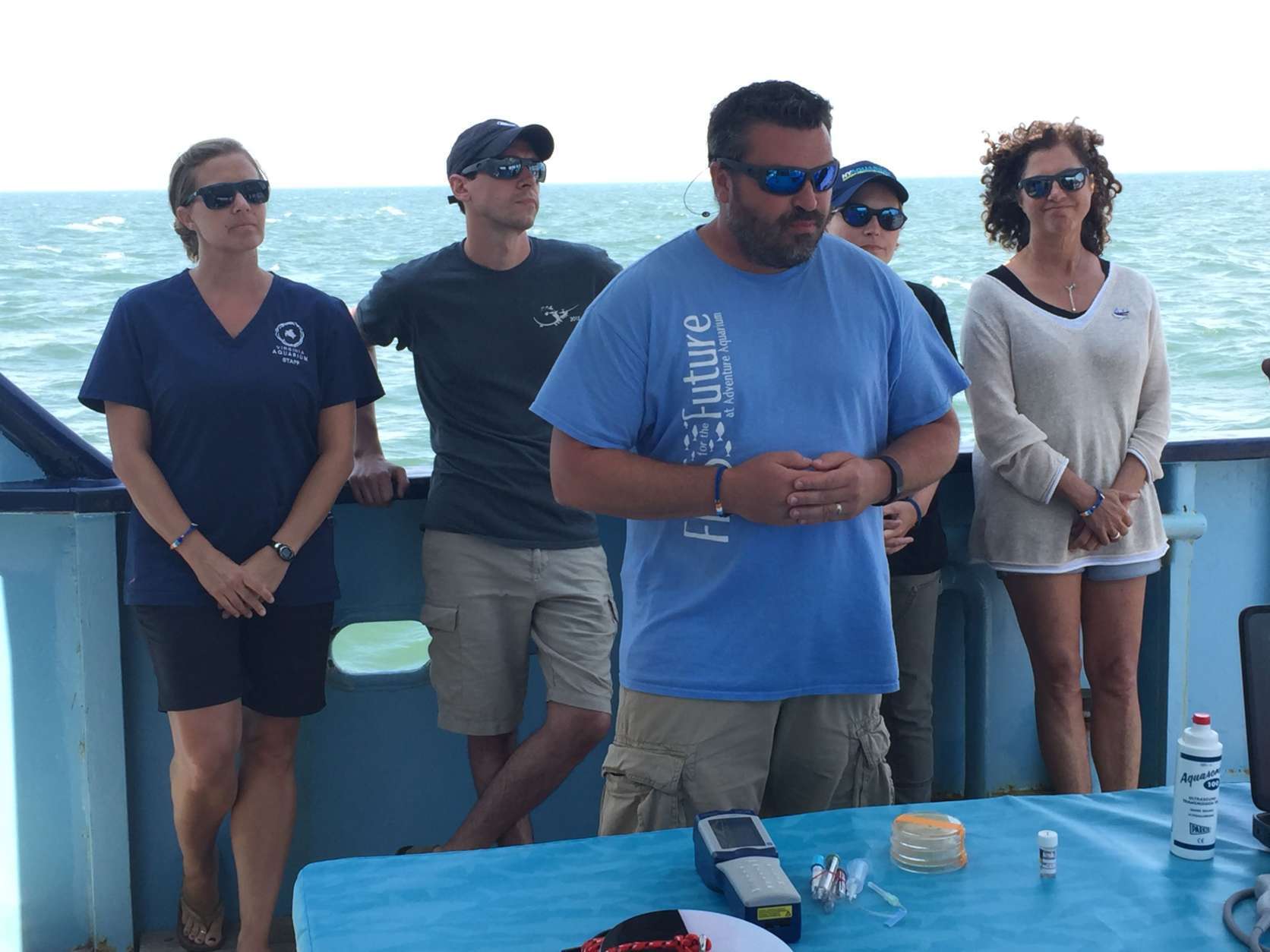
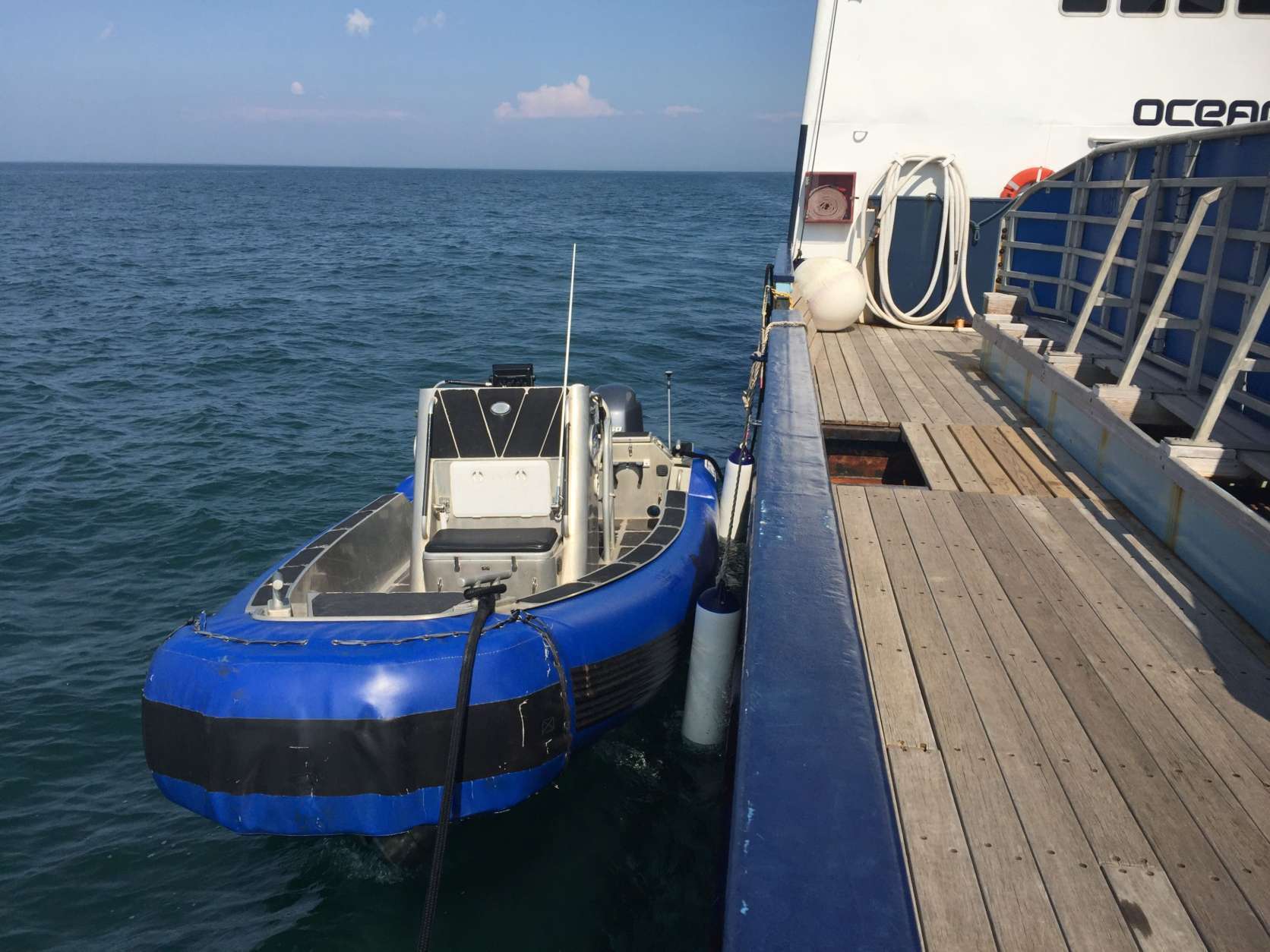
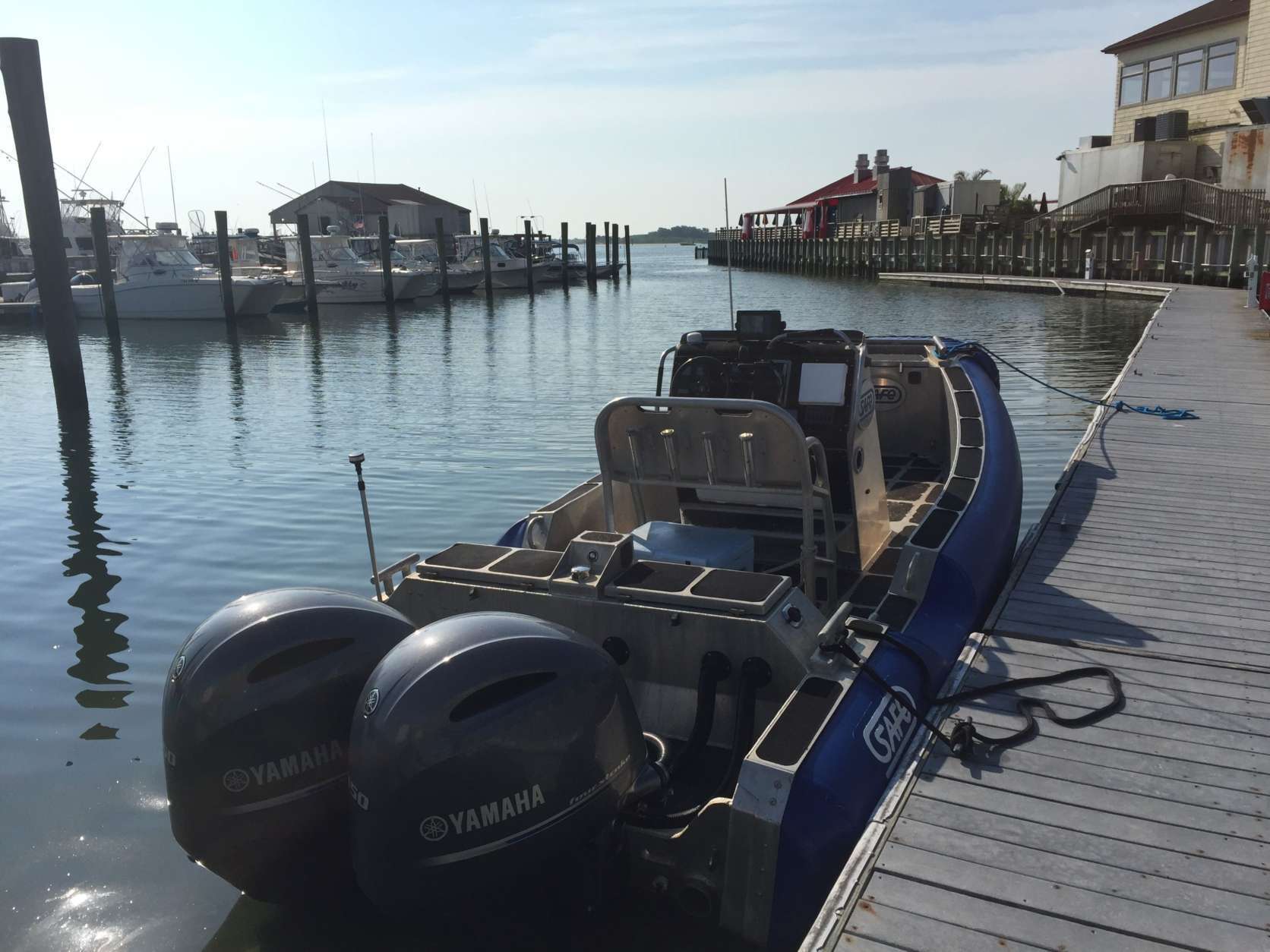
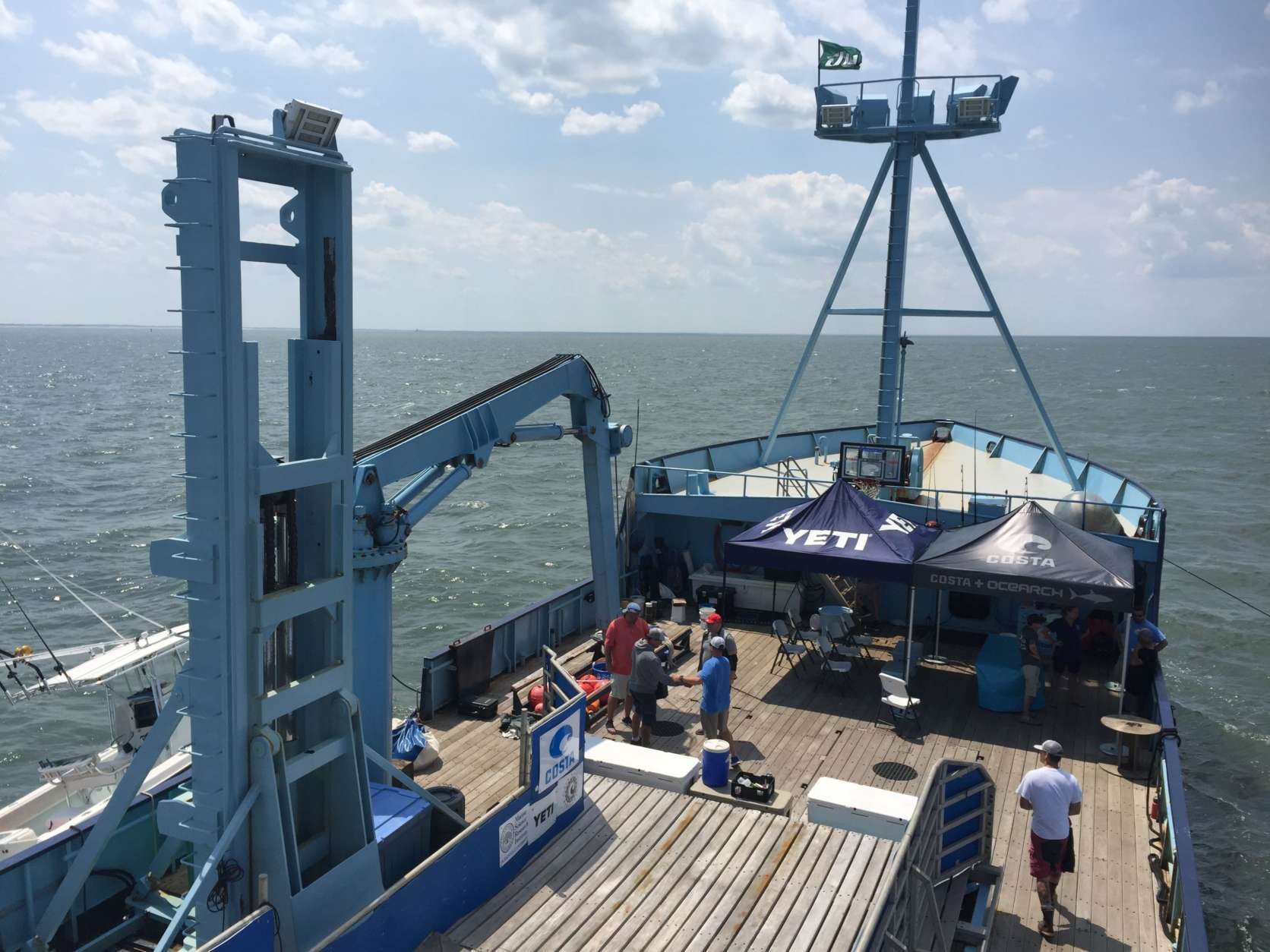
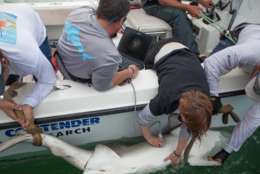
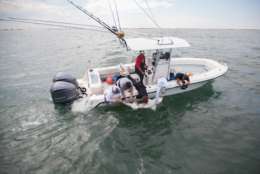
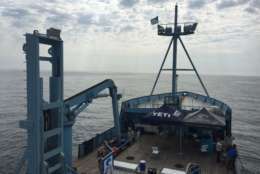
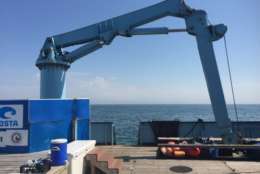
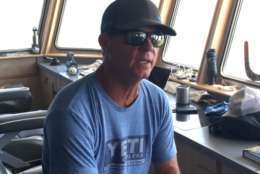
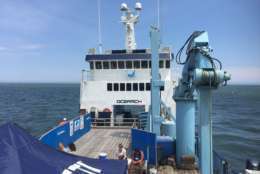
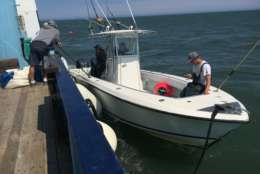
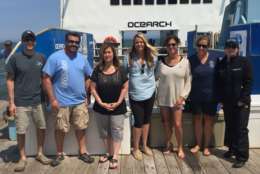
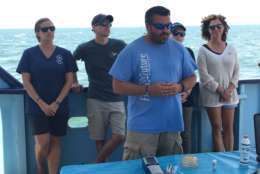
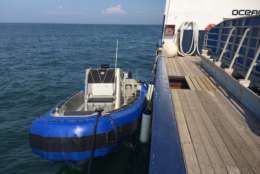
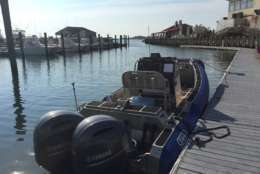
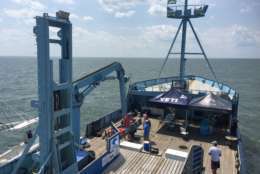
“We’re starting to get a handle on what’s going on in the Northeast and the Southeast, and we’re wondering how and when they’re leveraging the mid-Atlantic,” said Chris Fischer, OCEARCH founding chairman and expedition leader.
Last year, OCEARCH tagged nine baby white sharks, or pups, off the coast of Long Island in what appears to be a shark nursery.
“We saw those nine sharks last year swimming from Long Island down into the Carolinas and back up,” Fischer said.
It’s not clear yet how far south that nursery extends.
“We still don’t know much about the area, how they utilize it, if they could be potentially using it as a pupping ground,” said Hyatt.
“We know they’re gathering off the Cape Cod-Nantucket region in the fall. We believe they’re mating there. We’ve tracked a big female from there into this Long Island region. We believe that they’re birthing there in May and June. We know they’re overwintering in the Southeast, primarily we believe to forage. So the puzzle’s coming together,” said Fischer.
During the mid-Atlantic expedition, the researchers did not manage to catch any white sharks.
“We thought that they would be moving through here, staging in here. But we get here and the water’s really too warm,” Fischer said.
But not all was lost. The crew caught, tagged and took blood samples from some tiger sand sharks.
See video of it here:


